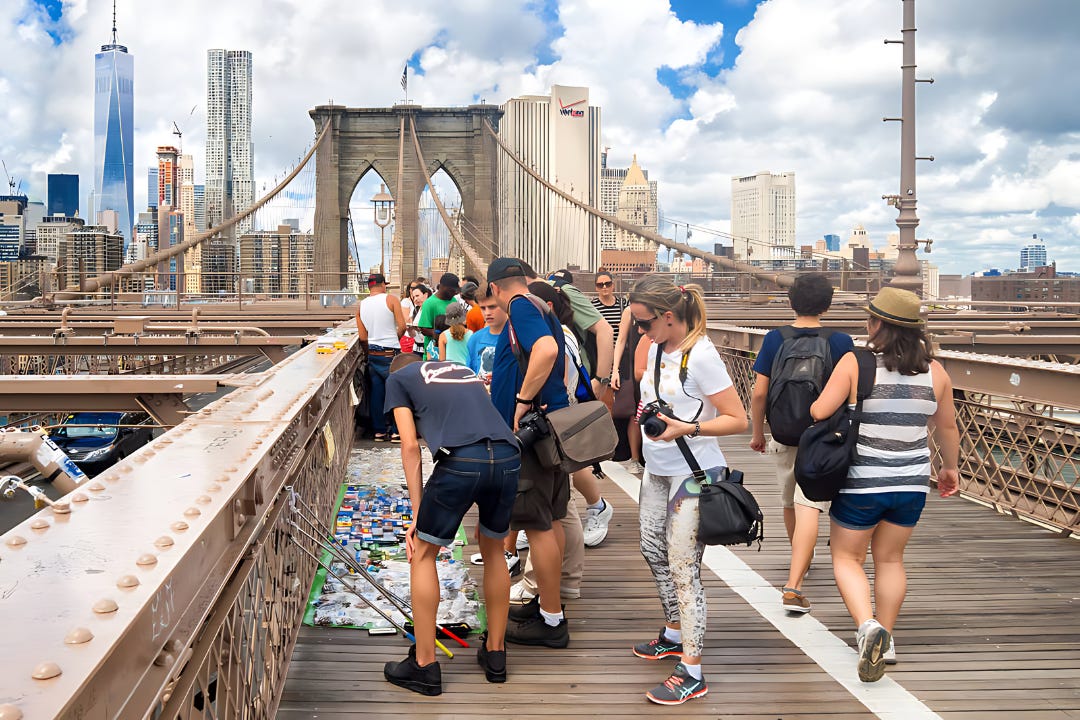Hidden Heroes of Local Economies
How Tourists and Commuters Boost Sales Tax Revenue
is no secret that politicians prefer to tax anyone but their own constituents. In North Carolina, where tourists, commuters, and college students abound, the sales tax is one way in which local governments might be able to do just that. A new study out of the University of North Carolina by researchers Whitney Afonso and Jeremy Moulton have peeled back the layers on how these taxpayers silently fuel local revenues through their spending habits.
The study used the economic chaos of the early 2020 COVID-19 lockdown to pinpoint these contributions. With people forced to stay home, the absence of non-local spenders created a unique window into their economic footprint.
Afonso and Moulton's findings are eye-opening: each commuter entering a county added roughly $1,000 to the monthly sales tax revenue, contributing around 17% of the tax base for a typical county in North Carolina. Similarly, every vacant hotel night during the lockdown meant a $525 dip in taxable sales, which equates to about 12% of a median county's sales tax revenue.
Afonso explains that there is a lot of diversity going on in how hotels are associated with sales tax collections. “In some counties, you are absolutely correct that there will be a mix of travel for pleasure and work. Some hotel rooms will be booked for individuals and others for families, etc. This will all impact how much they spend and how much they contribute to the sales tax base. So what we are really measuring is the average impact and it is important for public officials and others to consider how their overnight visitors and broader swath on non-resident visitors may differ from the average.”
Interestingly, the study didn't find that college students made much of a dent in local sales tax revenues, even when campuses emptied out. This might mean students aren't big spenders once the semester is underway, or perhaps they just found new places to live locally, keeping their dollars in the community.
“Candidly, I was surprised by the lack of evidence that residential college students impacted the sales tax base,” says Afonso. “Living in a college town myself, I know that they spend money here as a part of the community. Likely, a part of the lack of estimated impact is due to the timing of the pandemic. It is possible that there are seasons when college students contribute meaningfully to the tax base and that is likely not mid-semester. It is more likely that that it is during periods where they are moving on and off campus. Also, many residential students are on meal plans with their college and university and may not be contributing to the sales tax base in the anticipated ways. It is also possible that students are not large contributors to the tax base. I think the final note for this is that much like the variation in tourists, there are variations in the expendable incomes of college students and we were not able to capture that element.”
In places like North Carolina, where local sales taxes are a critical revenue source, this research could shake up how we think about tax distribution and equity. The state has already started addressing some imbalances with policies like the “Sales Tax Fairness Act,” but this study suggests there might be more work to do to ensure all counties benefit equally from tax revenues.
Take Dare County, for example, where tourism balloons the local population from 37,000 to nearly 300,000 in summer. A significant chunk of their sales tax — about 52% — comes from visitors. This reliance on non-residents can be a double-edged sword, especially when unpredictable events hit.
“Having the authority to levy a local option sales tax does not necessarily mean it will be a robust revenue generator,” says John Stavick, another public finance expert who was not involved in the study. “Certain local governments, such as those concentrated in the state's urban areas, or along North Carolina's beaches which attract business from non-residents, will generate much more revenue than those in more rural areas of the state and are less likely to be visited by non-residents.”
This may be a wake-up call for local policymakers to look beyond the surface of tax collection and consider the broader economic ecosystem they're managing. It's about ensuring that when the next big shift happens, whether it's another health crisis or something entirely different, our communities are ready.
The study was published in Public Budgeting & Finance.
Our stories may be republished online or in print under Creative Commons license CC BY-NC-ND 4.0. We ask that you edit only for style or to shorten, provide proper attribution and link to our website. AP and Getty images may not be republished.


